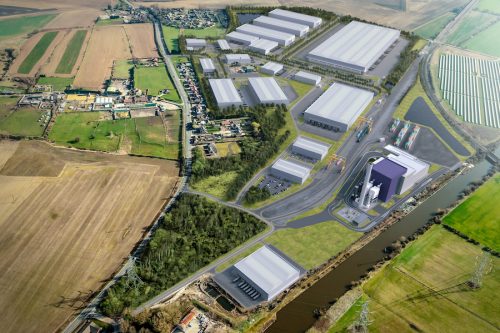Challenges remain but construction sector is committed to sustainability agenda

The regional director of land and property regeneration business, Harworth Group, reinforced his commitment to sustainability but admitted there were ‘challenges’ ahead.
Speaking at the Yorkshire sustainability conference, In the Circle, Peter Henry, regional director for Yorkshire & Central at Harworth Group, said the sector needed to recognize the disparity between the North and the South when it came to delivering sustainability and net zero objectives.
He said: “When we’re looking at the delivery of net zero, and in particular in the context of the North and the levelling up agenda, we need a real recognition of the disparity of the challenges of delivery of future home standards in the areas we work against perhaps delivering something in the London region.
“We’re heavily invested in making our developments, some of them that started 10-12 years ago now, sustainable both through past performance but also how we move those forward.
“Our business model means we have to look at five to ten years end, so we’ve been looking at this agenda for a long time and we see real change happening in the next two to five years.”
Also speaking in the session exploring sustainability in the construction sector were Gary Woodhead, founder of property fintech business, Curveblock and Beth McQue, planning and development manager at Keyland Developments.
Gary Woodhead said there needed to be a holistic approach to tackling environmental challenges in the sector.
“The biggest contributor to CO2 is construction – whether that’s new assets or established assets,” he said.
“Sadly, the biggest players in the market are guilty of this whether that’s because they’re either too big to pivot or whether it’s not in their financial interest to make that significant change before legislation forces them to do so.
“For us, it means it allows the innovators the ability to get a foothold in a sector that’s predominantly controlled by a handful of major players.”
Beth McQue agreed adding: “In terms of approaching the sustainability challenge we have got a long way to go.
“There is that public private sector split in terms of attitude, and the onus is very much on the public sector and government to push through and change legislation and bring in new policy, which is all well and good, but is probably not done fast enough.
“Also, the private sector is often sitting back and wating for those changes to come into force and are more reactive as opposed to proactive, and that’s the wrong mentality. The fact of the matter is that we are all in this together.”







